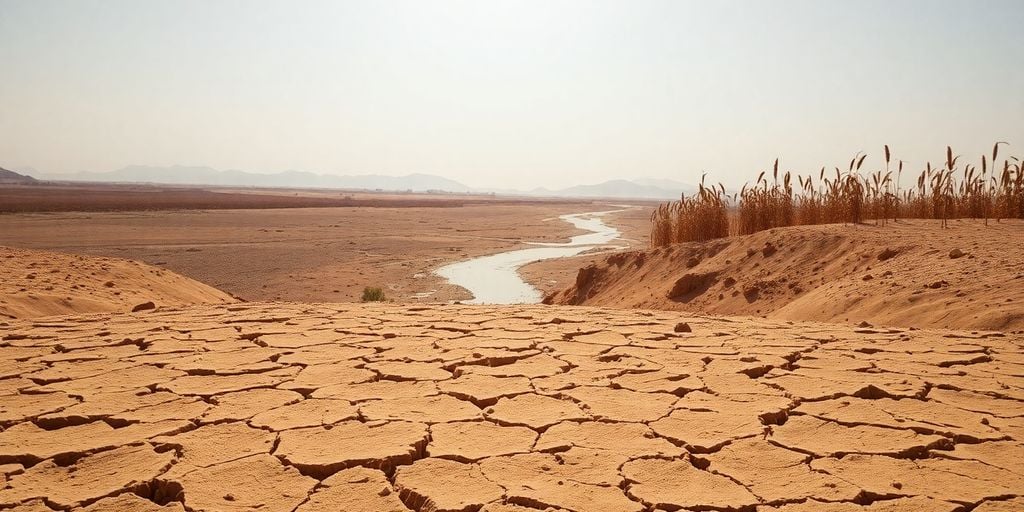The Western Balkans are currently grappling with a severe drought and widespread water restrictions, triggered by a record-breaking heatwave. Temperatures have soared, reaching up to 41°C (105.8°F) in some areas, leading to critically low river levels, agricultural distress, and significant impacts on daily life and power production across the region.
Region Reels Under Extreme Heat
The Western Balkans are experiencing an unprecedented heatwave, with temperatures consistently exceeding 40°C (104°F) in many areas. This prolonged period of extreme heat, coupled with scarce rainfall since winter and spring, has led to a severe drought, drying up rivers and lakes across Albania, Serbia, Kosovo, Bosnia, and North Macedonia.
Widespread Impacts and Challenges
The drought has created a cascade of problems for the affected countries:
- Agriculture: Crops are severely impacted, with Serbia’s meteorological institute warning of "extreme drought" affecting harvests. Albania has initiated projects to assist local agriculture with irrigation networks, including a new system to irrigate nearly 10,000 acres of land from the Mat river.
- Power Production: Albania’s hydropower-dependent energy sector has been hit hard, forcing the national power corporation to spend millions on energy imports.
- Water Scarcity: Small towns and villages in Serbia face drinking water restrictions. In Kosovo, the capital Pristina’s largest open-air swimming pool, Germia, remains closed due to the inability to fill its 5.3 million-gallon capacity, a process that now takes over three weeks instead of six days.
- Public Health: Health authorities across the region have issued warnings, urging residents to stay hydrated, avoid direct sun exposure, and advising vulnerable populations to remain indoors.
- Wildfires: The dry conditions have heightened wildfire risks, with incidents reported in Croatia, North Macedonia, and Albania. North Macedonia has banned entry into forests until the end of August, and Kosovo has prohibited open fires and fireworks.
Key Takeaways
- The Western Balkans are enduring a severe drought and heatwave, with temperatures reaching over 40°C.
- Water levels in rivers and lakes are critically low, impacting agriculture, power generation, and public water supply.
- Albania’s hydropower production is significantly affected, leading to increased energy imports.
- Water restrictions are in place in various areas, including the closure of a major swimming pool in Kosovo.
- Health advisories are widespread, urging precautions against the heat.
- Wildfire risks are elevated, prompting bans on forest entry and open fires in some countries.
Looking Ahead
Meteorologists forecast scarce rainfall until September, indicating a prolonged period of drought conditions. While some relief from the extreme heat is expected in the coming days, with temperatures potentially dropping to around 25°C (77°F) and some rain, the long-term water scarcity remains a significant concern for the region. Authorities continue to battle wildfires and implement measures to mitigate the effects of the drought.
Sources
- Western Balkans region faces severe drought and water restrictions during heat wave, The Lufkin Daily News.
- Western Balkans region faces severe drought and water restrictions during heat wave, Goshen News.
- Balkans braced for record-breaking heatwave, Reuters.
- Heat wave in Balkans to ease, while wildfires continue in some areas, Associated Press of Pakistan.
- Western Balkans face severe drought and water restrictions during heatwave, Toronto Star.






